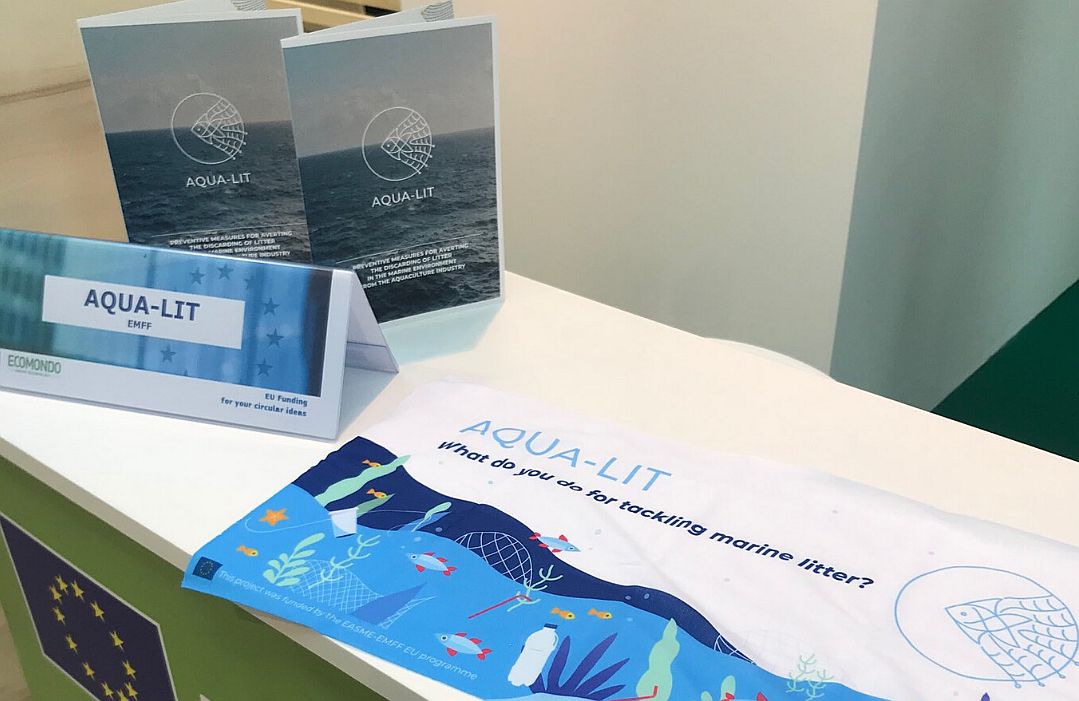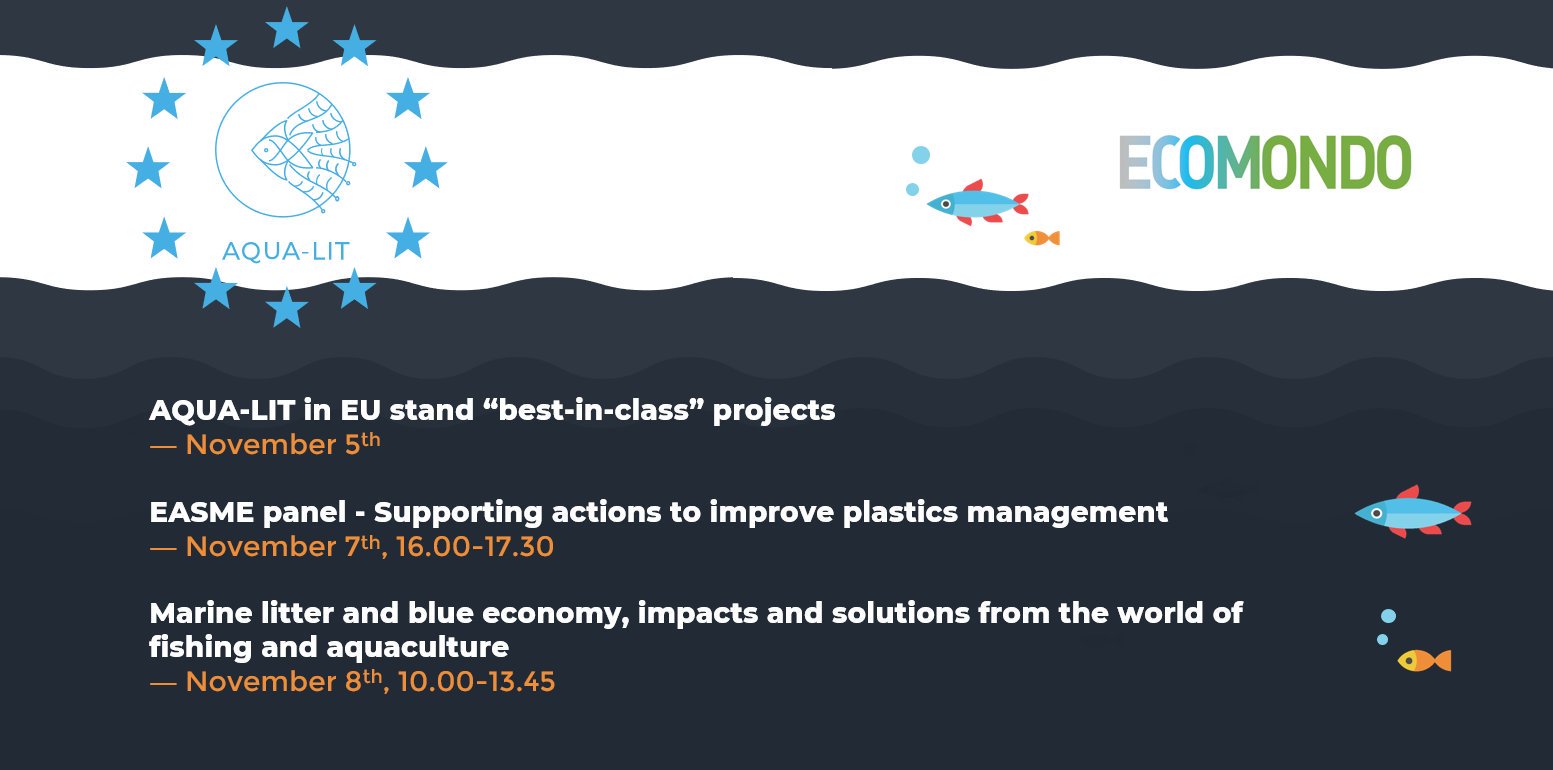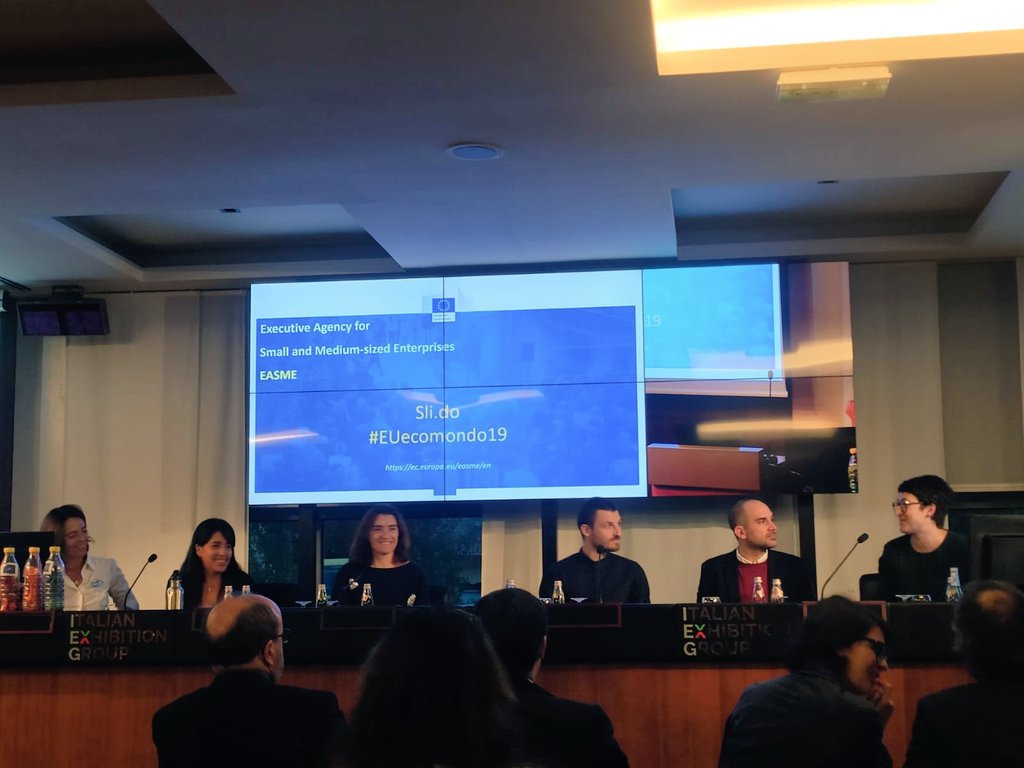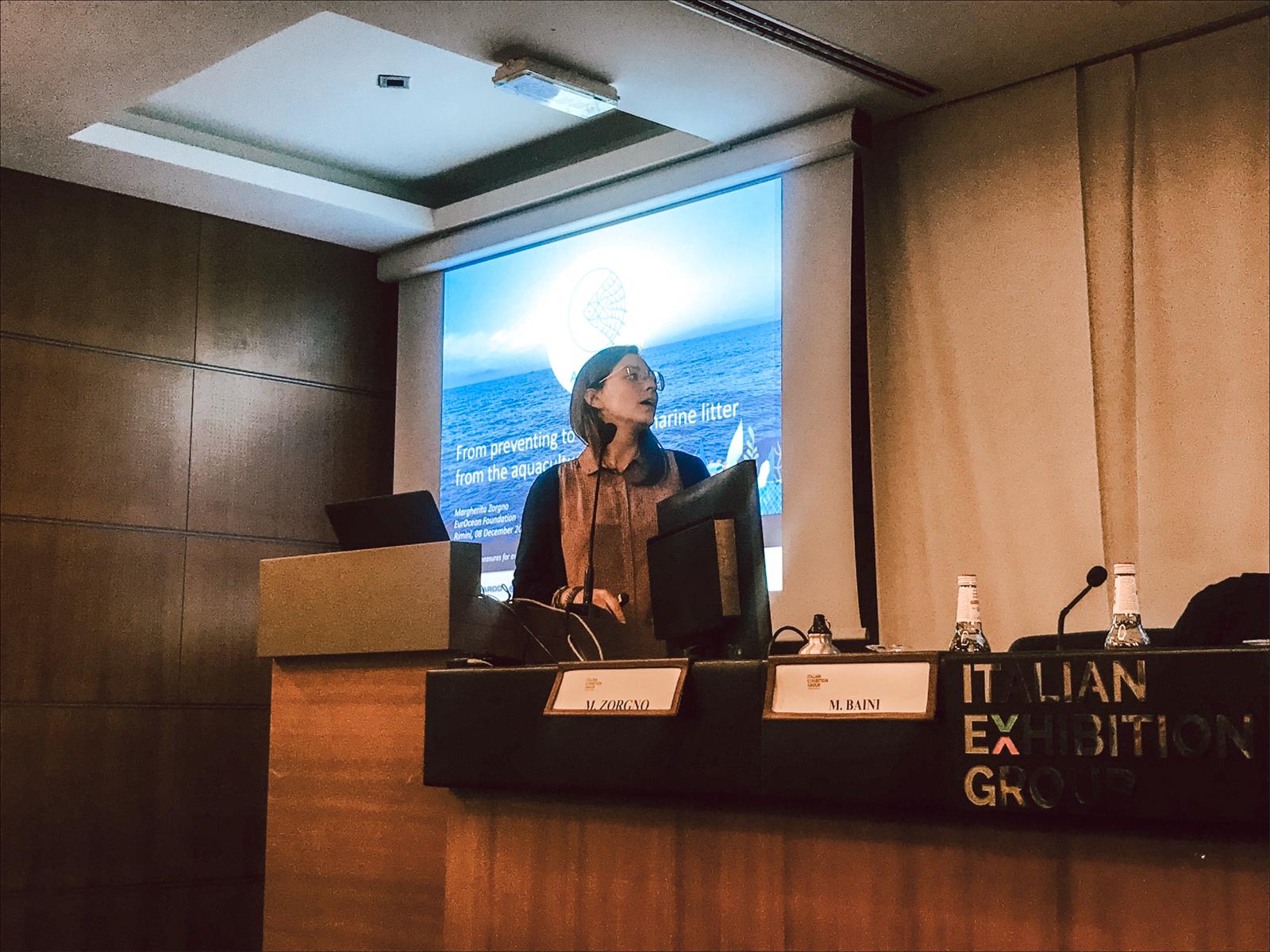
AQUA-LIT is traveling around Europe disseminating its first results achieved after 10 months of work.
This time, AQUA-LIT was invited to ECOMONDO Expo, an
international event that annually brings together all sectors of the circular economy in a unique big
platform.
AQUA-LIT was selected as ambassador of EU funds and represented EASME funding programme with a dedicated stand in the Expo. The coordinator Mariana Mata Lara was also invited to take part of the panel discussion on "Support actions to improve plastic management", and the important role of stakeholder engagement. She highlighted the crucial role of stakeholder engagement in AQUA-LIT and the importance of finding the best approach for engaging them in a successful way, sharing the project experience.
AQUA-LIT is engaging stakeholders through Learning Labs, surveys questionnaires and interviews. Until now, surveys questionnaires and interviews were conducted in different languages engaging stakeholders from all sea basins, and two Learning Labs were organised, one focus on the Baltic Sea and the other one on the North Sea. The Mediterranean Learning Lab will be organised next February 2020.
For the same occasion, Legambiente, one of the most influential Italian environmental organisation, invited AQUA-LIT team to the session “Marine litter and blue economy, impacts and solutions from the world of fishing and aquaculture” to share their results together with other interesting national and international organisations and projects. Margherita Zorgno from EurOcean, one of the AQUA-LIT partners, presented the first results of the aquaculture litter data collection, focussing on the situation of the Mediterranean Sea basin.
The session was focused especially on the fishing for litter programme and the new technologies developed for biodegradable aquaculture mussel’s nets. Abandoned and broken mussels farming nets are becoming a serious problem along the Italian coasts, since they are found in abundance on beaches, floating in the sea and on the seafloor. Several research centres such as the University of Siena and Enea are working on the development and trial of biodegradable mussels nets as a valuable solution.
AQUA-LIT can definitely play an important role on this issue, together with aquaculture stakeholders.
Mussels farming net on Rimini beach, Italy


